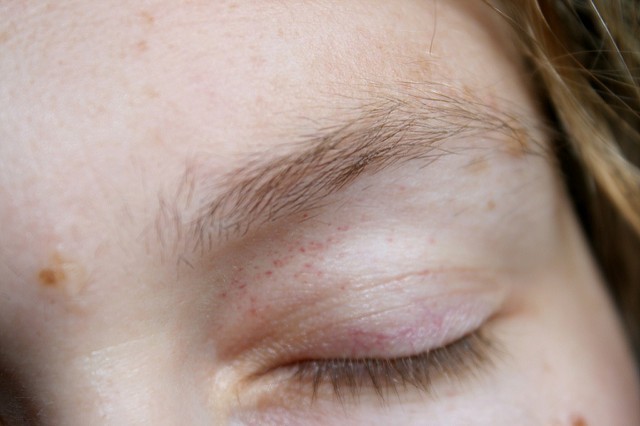What causes the uncontrollable twitching of an eyelid? Here are some explanations ...

Feeling an eyelid that begins to twitch without having the power to stop the movement is an episode that surely has happened to everyone.
Sometimes the curious movement, which should not occur frequently, affects other areas of the body, such as the corner of the mouth or another muscle, and then stops within a few seconds.
If you often experience this type of muscle spasm, there may be several reasons behind the phenomenon.
Here's what doctors tell us.
Cover image: AJC1 / Flickr, Craige Moore / Flickr, Maxpixel
Muscle spasms aka twitching involving the eyes are quite common. They are usually occasional, but sometimes twitching can last for months.

This twitching or muscle spasms, called "myokymia", can occur both in the eyelid area and around the lower eyelid. The twitching can be caused by several factors, including:
Stress: When stressed, the body warns us in different ways, and muscle spasms such as eyelid twitching are one of them, especially if there are vision problems.
Physical and mental exhaustion: lack of sleep plays a crucial role in the appearance of eyelid twitching.
Eye strain: Excessively fatigued vision can cause eyelid twitching. A visit to an oculist is recommended to determine if you need to start wearing eyeglasses or contact lens or to change your prescription.
Caffeine and alcohol abuse: It is believed that drinking a lot of coffee and alcoholic beverages are responsible for the appearance of muscle spasms and eyelid twitching. Trying to reduce their consumption could eliminate the problem.
Eye dryness: Dry eye is a condition that affects older people, those individuals who make use of many drugs, people who work for many hours in front of a computer or those who wear contact lenses. Try moisturizing the eyes to prevent eyelid twitching.
Nutritional imbalances: An underlying cause of this comfort is also a deficit of some nutrients and vitamins.
Allergies: Excessive tearing, itching, and consequent rubbing of the eyes caused by allergies can increase the amount of histamine, which triggers muscle spasms such as eyelid twitching.
In general, there is no need to worry when an eyelid twitches, or when any other muscle begins to twitch involuntarily. However, when it does happen, try to analyze whether there it is actually an unregulated lifestyle that is at the base of the issue.
There is no way to instantly eradicate eyelid twitching or muscle spasms in general if you do not adopt a daily routine that is compatible with obtaining and maintaining a healthy lifestyle.
In addition, be careful not to confuse eyelid twitching, which is a mild tic, with other more serious issues, such as blepharospasm (involuntary and repeated eyelid closure) and facial muscle spasms.





